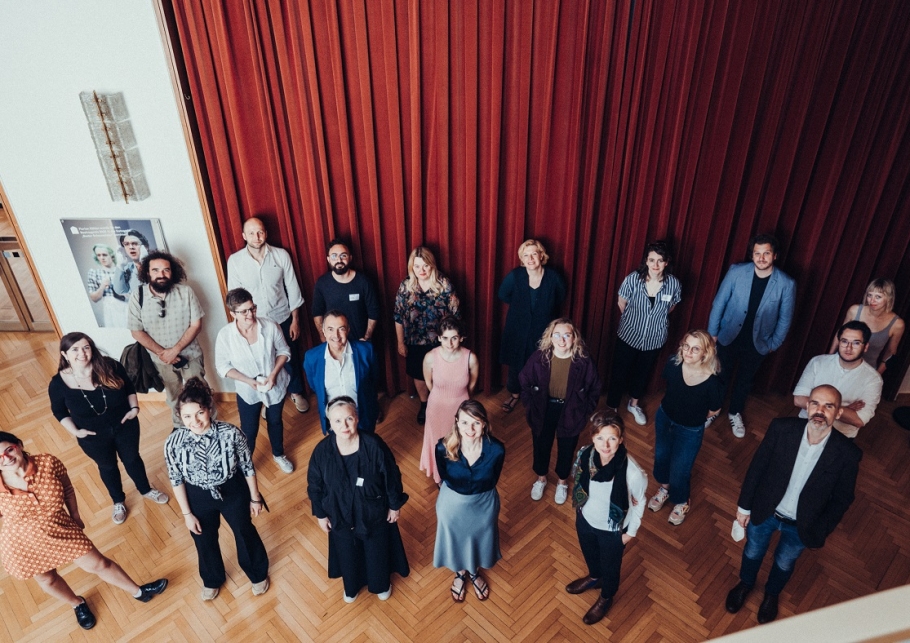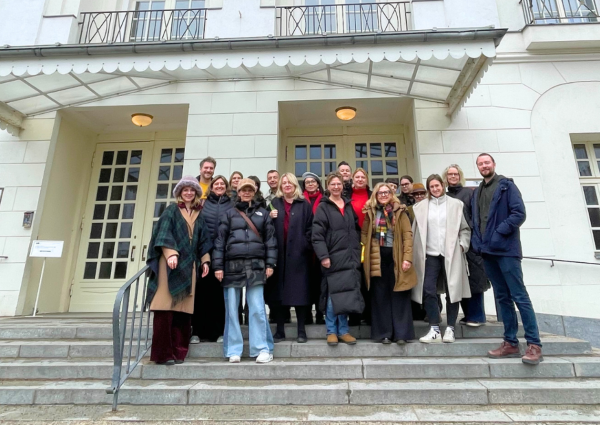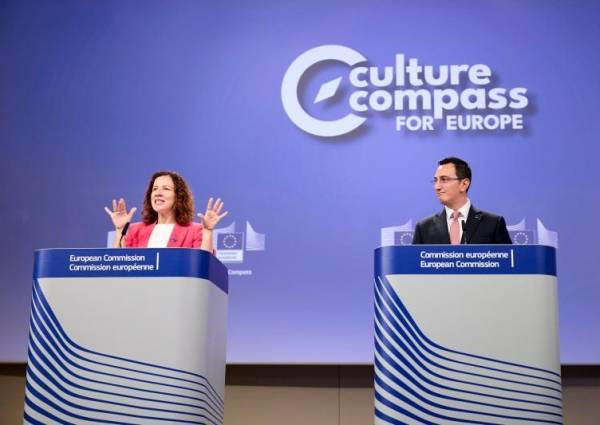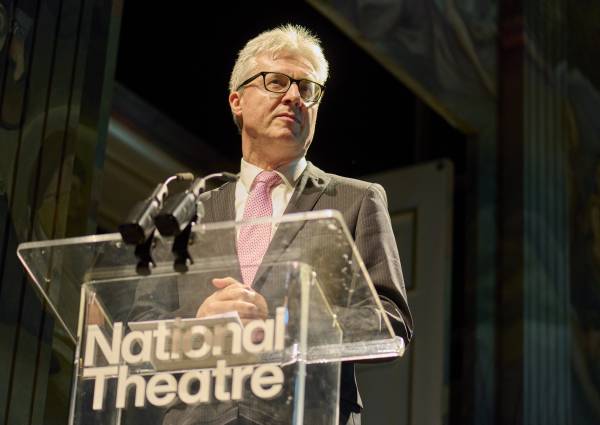Major theatres in 25 European countries have made a promise to reduce their carbon emissions to at least zero by 2030 as part of a plan, coordinated by the European Theatre Convention (ETC), to create a “more sustainable, conscious, mindful and just future”.
Leading European Theatres have made an ambitious promise to completely eradicate their carbon emissions over the next decade.
The 46 theatres in the European Theatre Convention (ETC) network, drawn from 25 countries, have pledged to become climate neutral by 2030 – stressing that they will make changes to activity across their buildings and theatrical productions.
This is part of a wide-ranging plan to create a “more green, sustainable, conscious, mindful and just future.”
“We, theatres in Europe, are committed to measuring, understanding, reducing and offsetting our ecological footprint through information, mobilisation and legalisation on the European level,” the theatres say in a new Sustainable Action Code.
Lex Karelly

Lex Karelly
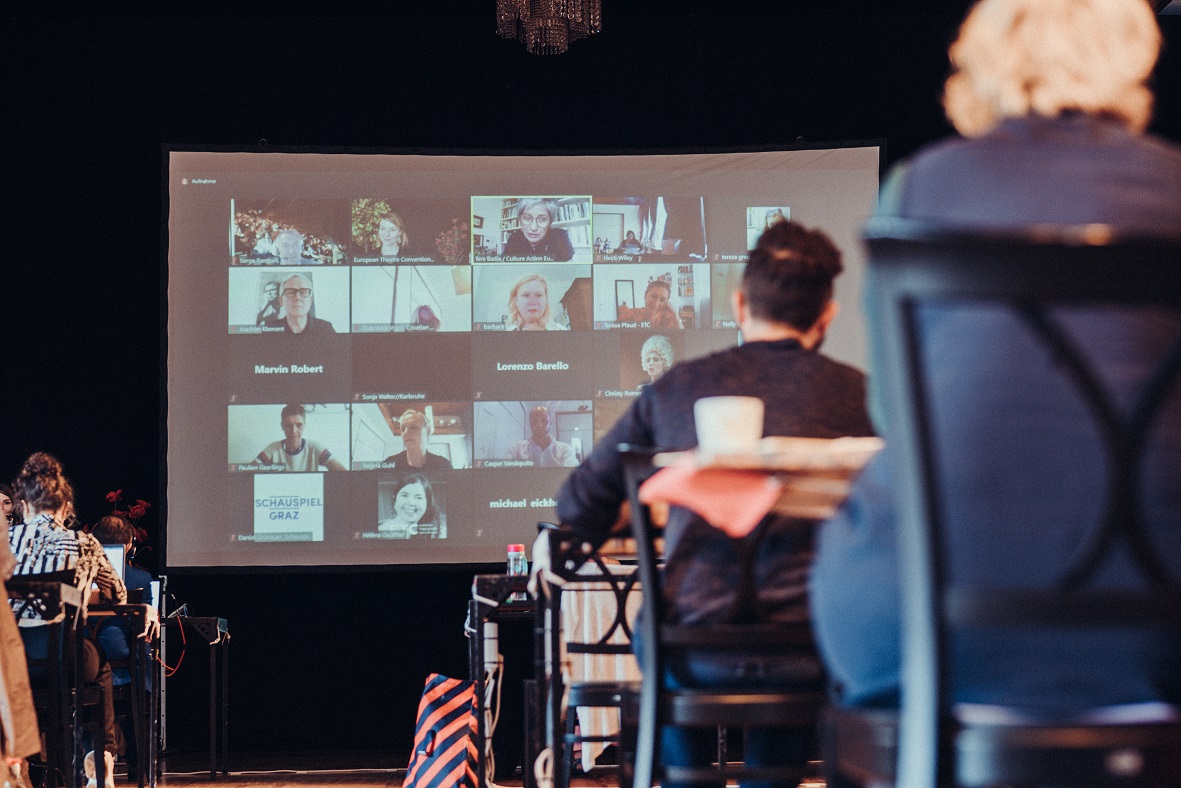
Photos from ETC International Theatre Conference in Graz. (c) Lex Karelly
“Theatres have the power to reach many people across society, to engage and initiate cultural debates. Creating a better and more equitable future is at the heart of our ‘recovery plan’ to overcome the Covid-19 crisis, providing resilience, all while reducing our impact on the climate crisis.”
The pledge, made by theatres including Schauspielhaus Graz (AT), National Theatre in Prague (CZ), Théâtre de Liège (BE), Staatsschauspiel Dresden (DE) and Teatro Stabile di Torino (IT), is the first for the theatre sector and takes the artform further than the European Union as a bloc, which recently pledged to cut carbon emissions by at least 55% by 2030 compared with 1990 levels.
The announcement comes at the end of the Week of New European Drama (7-13 June), a week-long celebration of new writing held in partnership with Schauspielhaus Graz and the theatre’s Dramatiker*innenfestival.
8-point plan
The Sustainable Action Code for Theatres sees ETC member theatres commit to “becoming a climate positive network and membership” by the end of this decade.
To achieve these objectives, and develop sustainable processes in theatre organisations, theatre buildings and theatre productions, the code sets out eight goals:
- A sustainability strategy and action guidelines for theatres that set out clearly measurable goals and actions to reduce the sector’s ecological footprint
- Knowledge transfer to exchange on best practices, and a recognition that ‘sharing is caring’
- Training for theatre professionals to change behavioural, artistic and organisational practices
- Artistic visions for a greener and more just future - including producing narratives, dramaturgies and performances on stage
- Fair collaboration and touring models, by strengthening European and international cooperation
- Public debate between artists, scientists and stakeholders, to shape societal dialogue
- Visibility and communication to present the achievements
- Legislative documentation, and informing and influencing policy regulations on a European level.
Commenting on the new code, ETC Executive Director Heidi Wiley said: “It is time for us to make a stand. With the climate crisis ever more present, we need to stop talking and start acting.
“We set up the ETC Green Theatre Committee in 2021 to drive change and one of the key decisions was to set a public target for progress on sustainability. We felt this would make the theatre sector a lighthouse for change – boldly stepping forwards and showing others the way.”
Iris Laufenberg, Vice President of ETC and Director of Schauspielhaus Graz, said: “We are very pleased to support ETC’s Sustainable Action Code for Theatres.
“We have spent a long time at Schauspielhaus Graz integrating basic and advanced approaches to sustainability into our theatre work, and we know how important it is to see sustainability as the intersection of ecological, economic and socio-cultural considerations. We also see sustainable change as a circular process, driven by and involving both our artistic and administrative staff and colleagues, of identifying problem areas, testing solutions, and evaluating the process.
“We are excited to publicly continue our journey and to work with colleagues across Europe on this ambitious but necessary goal to become carbon neutral by 2030.”
Serge Rangoni, ETC President, General Manager & Artistic Director of Théâtre de Liège/Belgium, said: “Changing the mentality and the way of working across the whole theatre is extremely difficult, because our work is made by people. People and audiences and technical teams that travel and move around. Sustainable changes require a lot of constraints, and accepting constraints is not easy, especially when some artists can only survive by touring.
“It’s a huge topic that we have to handle with the theatres, theatre staff, and artists. But it is the moment to reflect on this, particularly as we rebuild again.”
Lex Karelly
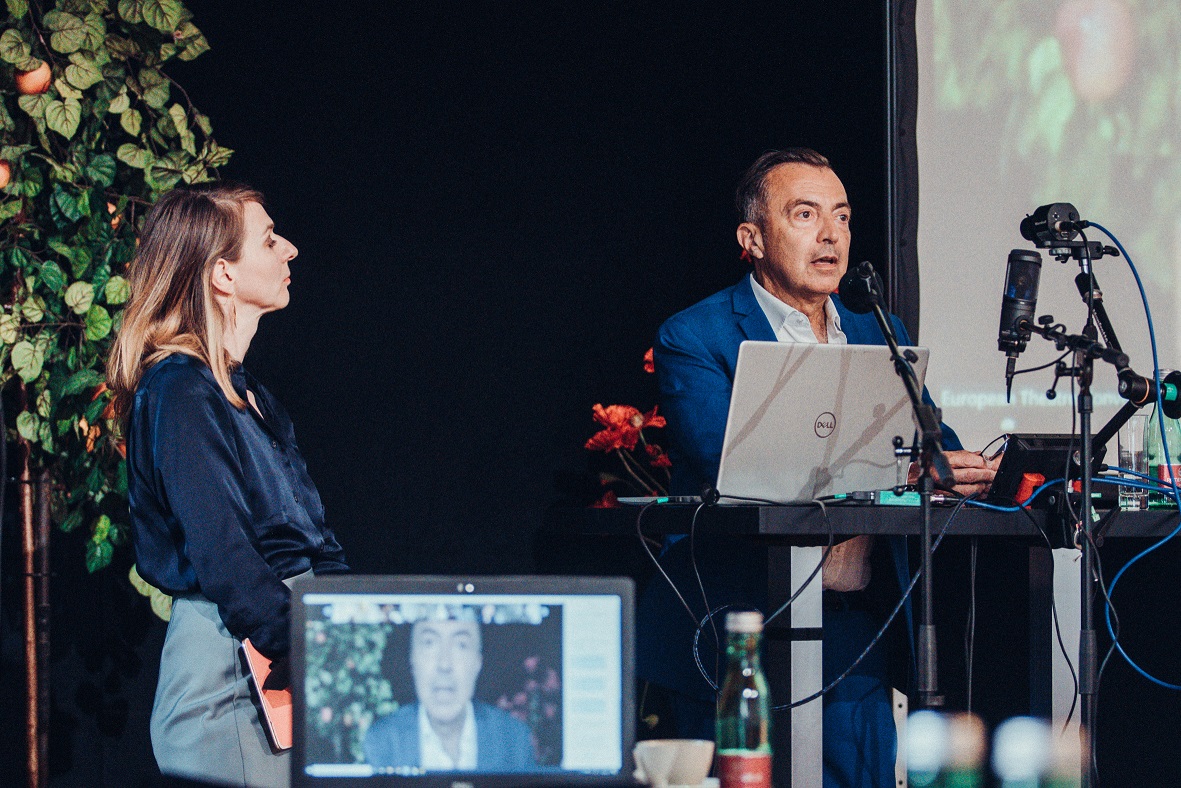
Week of New European Drama
The release of the Sustainable Action Code comes at the end of Week of New European Drama (7-13 June), a week-long celebration of new writing hosted in partnership with Schauspielhaus Graz. Activities were hosted in a fully immersive, digital version of Graz venue on the drama.digital venue, developed by artist Collective CyberRäuber.
The flagship event was the ETC International Theatre Conference, which began with a livestreamed panel discussion on ‘Silenced Theatres: Illiberal Democracies and the Effects of Covid-19’. The session, moderated by journalist Annette Gerlach, offered reflections on artistic freedom and creative risk-taking in countries including Slovenia, Hungary and Poland. It featured interventions from Member of the European Parliament (MEP) Niklas Nienaß; Theatre Director and Assistant Professor at the former Theatre Academy in Budapest (SZFE, now freeszfe) András Dömötör; Polish Curator & Researcher Marta Keil; and Slovenian Playwright and Dramaturg Simona Hamer.
Reflecting on the challenges for theatres in increasingly authoritarian political contexts, MEP Niklas Nienaß said: “I am very happy to see the creativity that is thankfully still alive in theatre -- not to just develop an idea, but also transport a message and set that idea in motion.
“Attacking culture is always the very first step to change society as a whole, in order to get rid of criticism, to get rid of freedom, and to get rid of free thinking. So I think it is very important to keep that [creativity] alive and tell those stories that are so interesting that you really feel like you’re there. You really get involved because of that.”
In addition, the Week of New European Drama comprised:
- the Young Europe Festival TO:GATHER (7-9 June), premiering 9 original productions from 9 theatres in 5 countries, made for and with young people during a 4-year artistic collaboration programme;
- An innovative programme of participatory Zoom readings for plays translated into English for the first time, funded through ETC’s ENGAGE New Drama programme
- Schauspielhaus Graz’s Dramatiker*innenfestival, which was postponed from 2020 and this year looked into the unknown based on the past and the present. From June 8th to 13th, all events at various locations such as the Theater am Lend, the Schauspielhaus Graz and the Heimatsaal in the Folklore Museum revolved around the topic of "ABOUT TOMORROW".
Also unveiled during the Week of New European Drama were a series of policy recommendations for public theatres, funders and policy makers on a national and European level, focused on key pillars of ETC’s activity over the past four years through the Creative Europe-funded ENGAGE programme. These are participatory theatre, youth theatre, and diversity and gender equality. All of the policy recommendations can be downloaded on the ETC website.
- ENDS -
Press Contact
For interviews and all enquiries, please contact Christy Romer, ETC Communication Manager communication@europeantheatre.eu
0049 17 235 720 92


